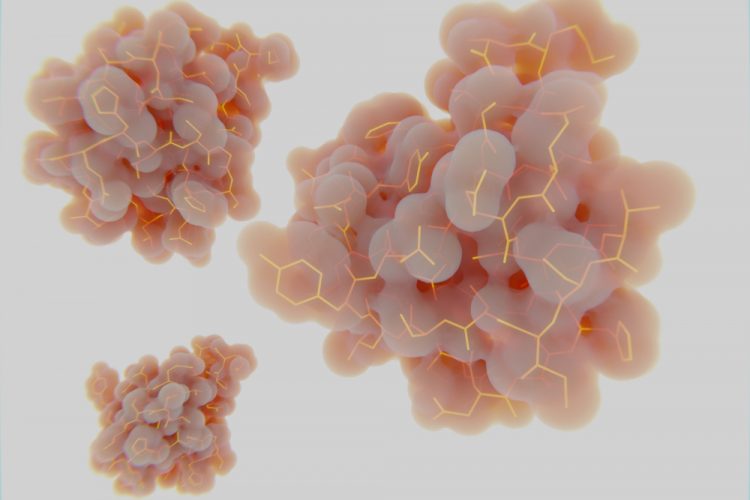New potential drug target is discovered for diabetes treatment
Posted: 11 December 2023 | Drug Target Review | No comments yet
Researchers found heightened SCAN enzyme activity in humans and mice with diabetes results in excessive nitric oxide on insulin receptors.


Insulin molecules
An enzyme that blocks insulin produced in the body has been discovered by researchers at Case Western Reserve University and University Hospitals. This finding may provide a novel target to treat diabetes.
The body of individuals with diabetes often stops responding normally to insulin. The resulting increased blood sugar stays in the bloodstream and, over time, can cause serious health problems. The Centers for Disease Control reports that those with diabetes have a higher likelihood of suffering from conditions as heart disease, vision loss and kidney disease. However, the reason that insulin stops working is not well understood.
The study concentrated on nitric oxide, a compound that has numerous functions including dilating blood vessels, improving memory, fighting infection, and stimulating the release of hormones. However, it had been unknown how nitric oxide performs these activities.
In the new study, the researchers discovered a new carrier enzyme named SNO-CoA-assisted nitrosylase, or SCAN, which attaches nitric oxide to proteins, including the receptor for insulin action.
The SCAN enzyme was found to be essential for normal insulin action, but the researchers also discovered heightened SCAN activity in diabetic patients and mice with diabetes. Mouse models without the SCAN enzyme appeared to be shielded from diabetes, indicating that excessive nitric oxide on proteins could be a cause of such diseases.
Dr Jonathan Stamler, the study’s lead author said: “We show that blocking this enzyme protects from diabetes, but the implications extend to many diseases likely caused by novel enzymes that add nitric oxide.” Dr Stamler is the Robert S and Sylvia K Reitman Family Foundation Distinguished Professor of Cardiovascular Innovation at the Case Western Reserve School of Medicine and President of Harrington Discovery Institute at University Hospitals. “Blocking this enzyme may offer a new treatment.”
Nitric oxide binding excessively to key proteins is believed to cause or accelerate many diseases, like Alzheimer’s, cancer, and diabetes. Dr Stamler said with this discovery, enzymes that attach the nitric oxide become a focus.
Dr Stamler explained that the ability to treat excessive nitric oxide has been limited because the molecule is reactive and cannot be targeted specifically.
He concluded: “This paper shows that dedicated enzymes mediate the many effects of nitric oxide…Here, we discover an enzyme that puts nitric oxide on the insulin receptor to control insulin. Too much enzyme activity causes diabetes. But a case is made for many enzymes putting nitric oxide on many proteins, and, thus, new treatments for many diseases.”
This study was published in Cell.
Related topics
Drug Targets, Enzymes, In Vivo
Related conditions
Alzheimer's disease (AD), Cancer, Diabetes
Related organisations
Case Western Reserve University, University Hospitals








